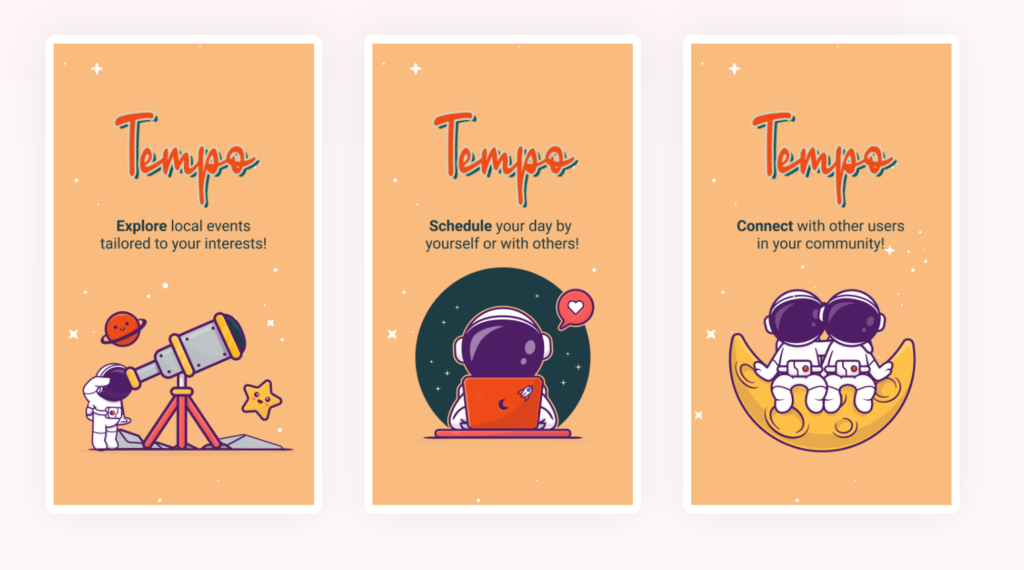
Tempo got its start in 2019 when co-founders Anriudh “Ani” Aditya and Ryan Hopson met working in the college housing department at Mississippi State University. Aditya, who serves as CEO, began discussing the businesses he wanted to build. Hopson, now COO, already had experience with the MSU Center for Entrepreneurship and Outreach, so he introduced Ani to the head of the e-Center, Eric Hill, and his resources for student startups.
After realizing their first idea, “4Students,” was too broadly aiming to reinvent Facebook—they settled on a more targeted strategy. Tempo seeks to create a new platform for content creators who focus on informational (but still entertaining) content. Throughout 2022, Tempo has been a tool similar to GroupMe for students, including an events calendar to create social connections. In the spring of 2023, the next step will be to add tools that will enable a curated group of creators to build an audience based on short videos covering educational topics.
“It started off as a chat app, and then as we continued to grow, we realized that the best way for the business to scale is to give other people opportunities to grow their own companies and brands,” Aditya said. “And that’s how we ended up becoming the content creation platform where we are today.”
If 2022 was the year where the pivot to content creators became clear, then 2023 is the year they’ll use to make that pivot a reality. Their goal is to focus on short-form, educational content—the sort of content you might find on TikTok or Instagram Reels but overlooked by an algorithm focused on humor and dancing. Tempo will seek to surface 60-second video clips on content such as travel, fitness, food and music, allowing content creators to form those clips into short courses.
Tempo plans to start by pushing out their new learning management system features (spearheaded by CTO Rajat Dabral) with ten creators in the spring of 2023 and help them become successful on the platform. By August 2023, they want 50 creators; they plan to up that to 100 in early 2024. The goal is to build new tools around creators and prove that the creators can make money from users, with the hope that they will bring both content and followers from their other social media platforms over to Tempo.
At the same time, if Tempo can show earned revenue from those happy creators, they believe they’ll have luck with investors. “If we can get those metrics (showing revenue), we believe we’ll be able to make the raise. That’s the last push we need,” Aditya said.
Hopson and Aditya both emphasize that they’ve found the MSU e-Center and Innovate Mississippi invaluable on their journey to found a technology company in Mississippi and want it to succeed in their home state. Before co-founded Tempo, Hobson worked with a non-profit to feed people in Holmes County, the state’s most food-insecure county. Today, he hopes the education focus of Tempo can help improve people’s lives and, potentially, move them out of poverty. “We really want this thing to success in Mississippi,” he said.
Likewise, he and Aditya hope Tempo can set an example for other student-founded technology companies. “If we want people to start building companies here in Mississippi—that will inspire younger generations—then we might as well try to be one of the first few that did it.”

